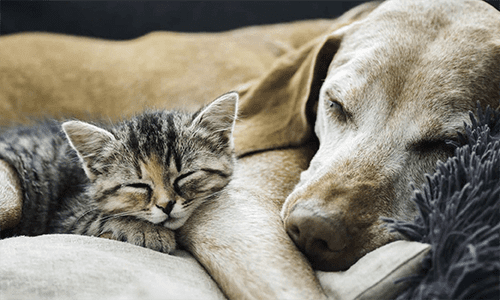By: Dr. Veja Tillman, DMV | Owner of Just 4 Pets Veterinary Wellness Center
A piece for me and a piece for you. Who hasn’t shared a small piece of food with their pet? I know I have and those small pieces add up. More than 85% of pets in the United States are obese. Obesity in pets has become a serious problem over the last decade or so. Pets have become more and more integrated into the family unit and we are feeding them like family members as well. It is no wonder why they are gaining weight. So how do we get our furry friends back in shape? Between diet and exercise, where do we start?
Here is what you need to know to try to control your pet’s weight.
TALK TO YOUR VET
Talk to your veterinarian before starting a weight loss program for your pet. This is paramount in making sure that your pet’s needs are met during this process. It may also help ensure that your pet’s specific needs and health conditions are addressed during the weight loss journey. Discuss your pet’s specific health conditions and how the weight loss, diet change, and exercise will affect your pet’s health and daily routine. Your veterinarian can also help guide you in monitoring your pet’s progress and alert you to any concerns during the process.
DIET
The type of food you feed your pet will determine the weight loss or gain of your pet. So choosing the appropriate diet is important. When choosing a diet for weight loss, discuss diet recommendations with your veterinarian. They may recommend non-prescription or prescription diets depending on your pet’s requirements. Diets that are high quality but lower in calories are best. The portion of the diet is also important. Don’t forget about portion control. You can feed the best high-quality diet and your pet may still gain or not lose any weight. This may be due to the portion or amount of the diet that is fed. Decreasing the portion size will decrease the amount of excess calories that your pet will consume and decrease the storage of the excess calories as fat. Excessive fat storage may lead to the formation of fatty growths under the skin known as lipomas.
EXERCISE/ACTIVITY
The next important factor is your pet’s activity level. How active is your pet? Do they run zoomies around the house or in the yard or are they couch potatoes? Are they younger or older pets? How and what type of exercise to introduce to your pet are great questions for your veterinarian. Your veterinarian knows your pet and can work with you to give the best recommendations for weight loss for his or her specific condition, age, and physical fitness level. They can guide you on when and how to exercise your pet and what physical activity will be safe for your pet’s age and physical and/or medical condition. Just like us, the wrong type of physical activity may cause injury instead of helping to achieve your pet’s physical fitness goals.
SNACKS/TREATS
Try to limit the amount of snacks and treats given to your pet. I know this is hard. Especially when they give you that deep eye contact that pierces your soul and you just can not say no. It’s ok, I get caught up in it too. However, we have to be strong for them and offer treats in moderation. We all want our pets to live long healthy lives and keeping them at healthy weights is one way to ensure that they will be with us for years to come. If moderation is easier said than done, the treats and snacks may be replaced with healthier alternatives such as high-fiber fruits and vegetables (green leafy veggies, green beans, apples, pears, oranges, etc with seeds removed). Take care to use root vegetables (potatoes, carrots, etc) in moderation as they can be quite starchy or contain higher amounts of sugar.
In summary, talk to your veterinarian before starting a weight loss program for your pet. Include. Any health concerns for your pet, types of diet foods, portion control, physical activity, and limitation of snacks and treats. Use your veterinarian as a key source of information for your pet’s weight loss journey. Your veterinarian is there to support you and your pet through this process.
Dr. Tillman is a 2002 graduate of Tuskegee University School of Veterinary Medicine. Her veterinary practice and work experience focuses on pet health and wellness. She is the owner of Just 4 Pets Wellness Center and can be reached at 239-270-5721.








